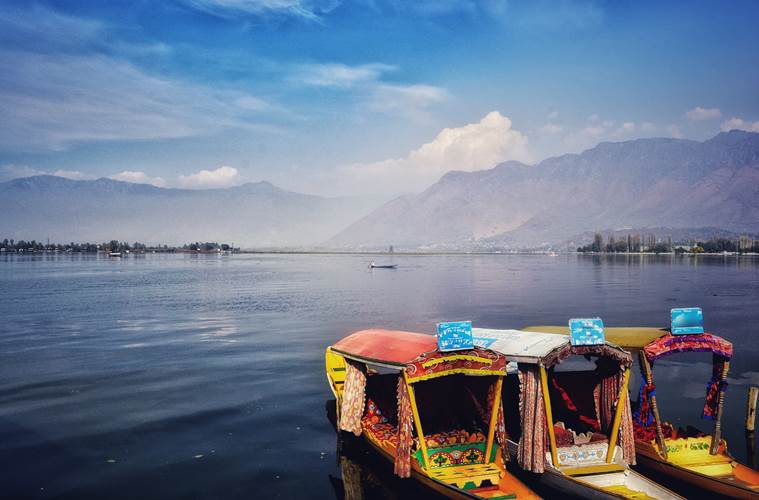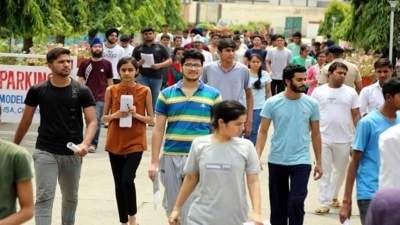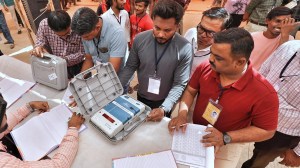- India
- International
COVID-19 impacts hospitality, travel sector: What’s on plate for students, job aspirants
Placements were midway for most institutes when the pandemic hit the country. The industry believes newer job roles will emerge and old ones might not be relevant. The academia is gearing up with a new curriculum, skill-based bridge courses, and special placement drives
 Soft skills. technical knowledge to be critical for newcomers. (Image: Pixabay)
Soft skills. technical knowledge to be critical for newcomers. (Image: Pixabay)
As the world came to a virtual standstill and public at large is being confined to their homes to fight the coronavirus pandemic, one sector which was affected the most is ‘travel’. A recent report by Naukri.com states that the hotel, travel and airline sector has seen a negative hiring trend of 91 per cent, highest across industries in April. The national average, as per the report stands at a dip of 62 per cent.
This has left students and job-seekers in the hospitality and travel industry anxious. Placements were midway for most institutes when the pandemic hit India. Resulting in delayed joining dates for some while others still at a job searcher. To compensate for the gap, professional institutes in the sector have started offering certificate courses or bridge courses online to train the final year students or fresh graduates in the trends that are expected to weigh heavily post COVID-19.
To attain the new normal, industry is relying heavily on keywords including ‘local’, ‘sustainable’, and ‘hygiene’. Thus, for job-seeks knowing operations alone might not be enough.
Which skills industry wants?
“Roles like revenue management, forecasting, and budgeting will be in demand, especially now. Multi-skilling and cross-skilling will be key differentiating factors going forward. Since social distancing and no contact will be a big part of businesses in times to come, understanding technology and leveraging the same to deliver an array of no-touch service will be of utmost importance post-COVID. Along with that digital experts specialised in online or telesales, aiding in increased revenue growth, will gain importance,” Jacob Peter, CHRO, Sterling Holiday Resorts – an independent subsidiary of Thomas Cook.
Read | Fee-waivers, relaxations: What are foreign universities offering for international students

“Hotels and travel destinations will have to win the trust of the customers back. They need to rebuild their image different from the among of land or size of the windows to how safe and how hygiene these are. As the industry is taking on a new role, it will be an opportunity for freshers to learn a lot. But, the new generation needs to know beyond the basic operations. Soft skills including communication, entrepreneurial skills, understanding of concepts like responsible travel, sustainability etc will be key parameters for hiring. Prospective candidates will have to learn these skills and then be ready to learn more at the job once the industry re-opens,” said Shoba Mohan, founder of RARE India who believes more local travel will pick-up, even more at drivable, local, Indianised, small travel destinations.
Special placement drives
The academia has been in sync with the industry and has introduced short-term skill-based courses for graduating students and many are considering holding a special placement drive later.
“As many as 70 per cent of our students have already been placed and we are in contact with key industry players to ensure no offers are pulled back. Most leading players including Oberoi, ITC have retained their promised offers, for most players, the joining dates have been deferred by around two months. For those students who have not been placed, we will hold another placement drive after the lockdown. We are expecting newer and allied fields including healthcare management, retail management, etc to hire students as these sectors would see an uprise and need hygienic and sustainable management,” said Suborno Bose, chairman, and founder, IIHM.
Read| Emerging courses to pursue: Virology | Actuarial science | Pharma Marketing | FinTech | Coronavirus | Robotics | Data Science | Cyber Security | Petroleum and Energy | Healthcare Engineering
Quoting the General Managers’ Sentiment survey, he said, the industry will revive within a year and business events would pick up first followed by personal events like weddings, etc. Instead of being a single event of 1000 people there will be spread out events in small groups and gathering, he predicted.
 Srinagar, India. (Source: Getty/Thinkstock)
Srinagar, India. (Source: Getty/Thinkstock)
New courses
Dilip Puri, founder, and CEO, Indian School of Hospitality (ISH) believes while the situation will start improving by the holiday season of December and will be back on track by the next year. The institute has launched an array of courses for its students based on emerging skills and also aiming to change its pedagogy. The ISH is aiming to provide online education even after lockdown, several courses in a blended learning format will be launched for executives who wish to reskill themselves. For such courses, weekend classes for practical training can be held. The institute is also mulling taking its degree programme online entirely.
Read | What graduates of batch 2020 need to do to be employed
For the current batch, a Postgraduate Diploma in Service Operations Management is launched. The course will begin in July. While it is for the batch affected by COVID-19, it would also be extended to working professionals and all graduates. The founder claims that skills like sustainability will be imbibed through this course and it is also suitable for allied fields including banking, retail, and aviation. Among other unique courses, ‘coding for hospitality’ at the undergraduate level is also introduced to help students ride the tech-driven disrupted wave in the sector.
Global outlook
Internationally, most of the institutes are holding classes online and are expected to accept international students through digital modes for at least the first semester of the new batch.
At Les Roches Marbella, a Spain-based global hospitality education institute, a new course, Master’s in International Hotel Management will begin in October. The institute has also introduced two-week courses on “Hotel Market Analysis and Valuation”, “Hotel Revenue Management”, “Excellence in Spa Operations” and “Maximizing Spa Profitability: Financial Planning for Spa and Wellness Centers” will allow students to obtain four professional certificates in addition to their academic degree for the final year students.
Read | How coronavirus disrupted Indian students’ study abroad dream
The institute is also running a new series of live online classes titled ‘Leading Hotel Management Education in Turbulent Times’ to update students on the impact of the global COVID-19 crisis and how to manage the distruption. While the content is exclusive to students of the institute, it will to hospitality professionals, entrepreneurs, and communities.
Carlos Díez de la Lastra, General Director Les Roches Marbella said, “Hotels will experience a quicker recovery if they can learn to identify and attract clients who are less prone to the risk in this crisis, such as young people. But the opportunities that will arise in the months following COVID will not only come from young travellers, but also from other types of travel, such as business trips. Work-related travel will likely be stronger and recover pre-crisis figures sooner.”
“The key to the industry’s recovery will not only be based on how stakeholders and players can quickly detect all these new opportunities, but also how we understand and manage the customer’s emotional reaction in an environment of fear and uncertainty,” he added.
Apr 18: Latest News
- 01
- 02
- 03
- 04
- 05






































